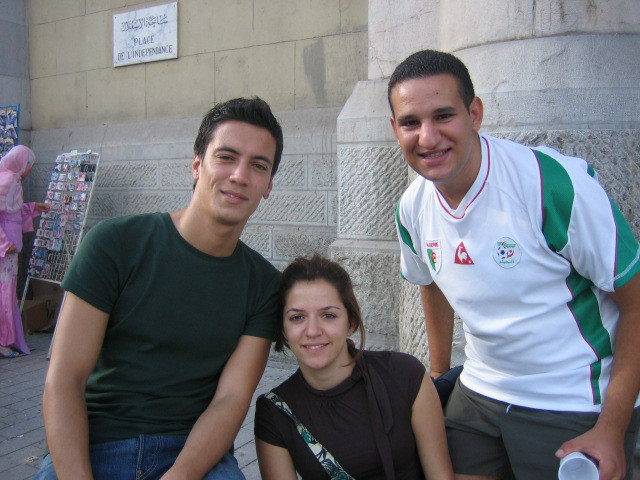
Photo Credit: Maryanne Pribila/FHI 360
Stop for a minute to think back to when you were a “youth” — say, when you were 19 years old — transitioning from adolescence into adulthood.
- Did you have ideals and ideas that motivated you and peers and adult mentors who positively influenced you?
- Did you have family who supported you and a community that you felt part of and in which you had a voice?
- Did you have a sense of who you were and access to physical and psychological safe spaces where you could express your identity?
If you answered yes, then you probably have a positive recollection of this period in your life. You were likely content with your trajectory into adulthood.
Now, think about what the experience of youth in disenfranchised and conflict-affected communities around the world might be.
- Do you think that these youth have a voice in their communities?
- Would you expect that they are viewed by others (including government officials and law enforcement) as an asset?
- Do you think that they have access to educational, social and employment opportunities? Do they see opportunities for themselves if they stay in their communities?
Most likely, your answer to these questions is no. This response would be consistent with what we have found through our work in communities worldwide where, more often than not, adults regard youth as a problem — prone to risky behaviors and participation in violent groups — rather than as potential contributors to the community’s future.
Many development practitioners, including myself, who have worked with youth in disenfranchised communities, have found that a positive youth development approach — one that involves youth themselves so that they are empowered and engaged as members of their broader communities — is key to building resilience to violence and other stresses. FHI 360 is testing this idea through a pilot project in Tunisia under the Countering Violent Extremism in the Middle East and North Africa (CoVE-MENA) project, funded by the U.S. Agency for International Development. The pilot — the Sharekna Project to Support Youth and Empower Local Communities — applies the theory of change that if youth are engaged and empowered to identify and address economic, political and social stresses, particularly drivers of violent extremism, in their communities, and if the capacity of community-level actors to collaborate with youth in addressing these drivers is strengthened, then youth and their communities will be more resilient to those stresses, including violent extremism.
The Sharekna project is bringing its “positive youth development”-centered, community-led approach to four Tunisian communities that are vulnerable to extremist recruitment. The project focuses on two approaches: community youth mapping, through which youth gather the perspectives of other youth and community leaders to identify youth needs, aspirations and access to services and opportunities; and FHI 360’s SCALE+ methodology, through which youth and community stakeholders come together in a Whole System in the Room workshop to share findings and develop collaborative action plans that address priorities for engaging youth. The project then supports youth and community actors in the joint implementation of local resilience activities.
The Sharekna project’s impact will be analyzed at its conclusion, but early results show improvements, especially in terms of youth engagement with local stakeholders and the interest among youth to contribute to positive change in their communities. Youth have had the opportunity to build relationships with government authorities and other leaders; identify, design and implement projects that will improve the quality of life for youth and the broader community; and acquire skills that give them the confidence to be changemakers.
We anticipate that the project will ultimately mitigate some of the push factors (community level) that violent extremist groups exploit in their recruitment, as well as some of the pull factors (individual level) that draw youth to join violent groups. We expect that efforts to better engage and empower youth will not only support their transition to productive adulthood, but will also strengthen the overall community’s resilience. We look forward to compiling results from our pilot project in Tunisia and hope to implement similar strategies in vulnerable communities in other countries.

Is a good work
How can fhi help me in youth development in Nigeria. I have an NGO on your development. Though not registered yet. I need support from fhi.